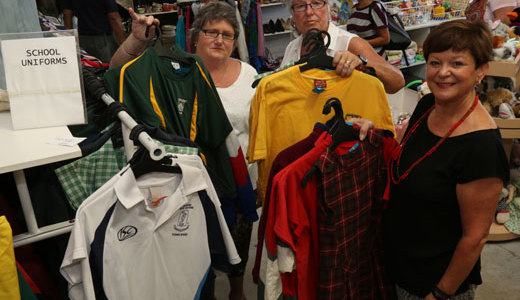
Josh went back to school last week in a rag-tag uniform. As his mum says it was “scraped together”.
He was still wearing the over-sized and tattered shorts he wore last year and the over-sized shirts he also wore last year.
There was no new shoes or schoolbag – but he did have a refill pad, a pen and an over-riding urge to learn. It was the best this proud and determined mum could do.
“I will go without myself before my son’s education is compromised,” says Glenda. “He will have everything I can possibly provide to make his schooling enjoyable.”
Heartfelt commitment from a struggling mum. But the reality is there won’t be much despite the scrimping and sacrifice.
It’s a simple equation of income versus outgoings and a boy’s education, which she says is “an endless drain”.
Josh and Glenda – we agreed to first names to save face.
It’s not a one-off story about a family locked in the poverty trap – it’s symptomatic according to Tauranga Budgetary Advice Services.
There are literally dozens of Tauranga families struggling just below or just above the poverty line to pay for a “free” education.
SunLive has learned of families paying off a child’s school bus fare by instalments, a $5 weekly automatic payment to cover school expenses, living off food parcels so school fees can be paid.
Add to this the shame of crying out for help so children can be educated – something that’s a legislated right in NZ rather than a privilege.
“Back to school is always a critical time for any family,” says Tauranga Budgetary Advice Service manager Diane Bruin.
“You have the outfall of Christmas and everything coming together – uniforms, fees, stationery, books and activities.”
Tales of hardship flow from the files of an overwhelmed budgetary advice service, where families seeking help have soared 25 per cent this year – from 80 desperate families in 2014 to 102 last month.
A critical time for some families, and breaking point for others.
“[I paid] $15 for a pair of school socks, just one pair because that’s all the money I had” says penny-wise Glenda.
And the worn shorts?
“[I think] $65 is way over the top for a pair of new shorts. And it’s only because they have got the [Tauranga] Boys’ College logo on them.”
Way over the top for someone who makes just $250 a week working three nights until 4am as a taxi dispatcher. Okay, there’s an accommodation supplement and Working for Families hand-up for which Glenda is grateful.
“It might be Tauranga Boys’ College, but there are plenty of kids there whose families are struggling,” says Glenda.
According to Diane, financial pressure would be the worst pressure on any family. “Simply because they don’t know how to deal with it and to seek assistance looks like they can’t manage.”
Glenda’s managing best she can with what she has, but doesn’t want her son disadvantaged scholastically simply because she’s cash-strapped.
“I find the school really good but it seems to be all about money which we don’t have,” she adds.
She contributes what she can. The voluntary school fees are about $120 a year but she doesn’t pay because she can’t. “I didn’t pay last year either.” Glenda’s not being defiant, it’s just an economic reality.
“I wanted Josh to go to a great school. Tauranga Boys’ College is a great school but I don’t think it’s fair to be paying out that sort of money for clothes, for uniforms.”
That’s an issue for her. “Why can you only buy college uniforms from the school? It tells me they can charge whatever they like.”
“And if you have money, if you can afford all the extra bits and bobs, then a kid seems to get on better. That’s how it comes across to me. If you can afford to pay you get a better deal.”
But Glenda can’t pay. “And Josh misses out because we can’t. I would dearly love him to have a full uniform. They have lovely windbreaker jackets but they cost $90. And then school trips…well?”
Glenda hasn’t asked for help balancing budgets and education but dozens of other Tauranga families have.
“It’s the same old problem,” says Diane. “If we haven’t been taught how to manage money and budgets and we can get easy credit, we do that.
“And if we haven’t had financial education then we won’t make vital decisions or take action until there is no money left.”
But rather than panicking about all the costs TBAS sits down with clients and plans and prepares.
“Tips like paying a little bit each week – if it’s a little amount you can afford it. But if you leave the electricity bill to the end of the month you get hit with a mountain – a $200 mountain.”
One family on TBAS’ books had a daughter starting college. The bill for uniforms alone was confronting. One skirt, two shirts, a PE uniform and Roman sandals, totalling $212.
And for winter, one more skirt, one jersey, one jackets and shoes – an extra $280. And costs like stationery, camps, student ID, subject fees and school donation. A grand total of $745 which this family didn’t have.
“However, the mother has been working with us for six months and is pre-paying. They’re managing out of a weekly income of $650.” Diane says help is there. “It can be done, just come and ask.”
Meanwhile, there’s a young man at TBC who’s eyeing a university languages degree. And he won’t let last year’s tattered shorts and shirts stop him.
